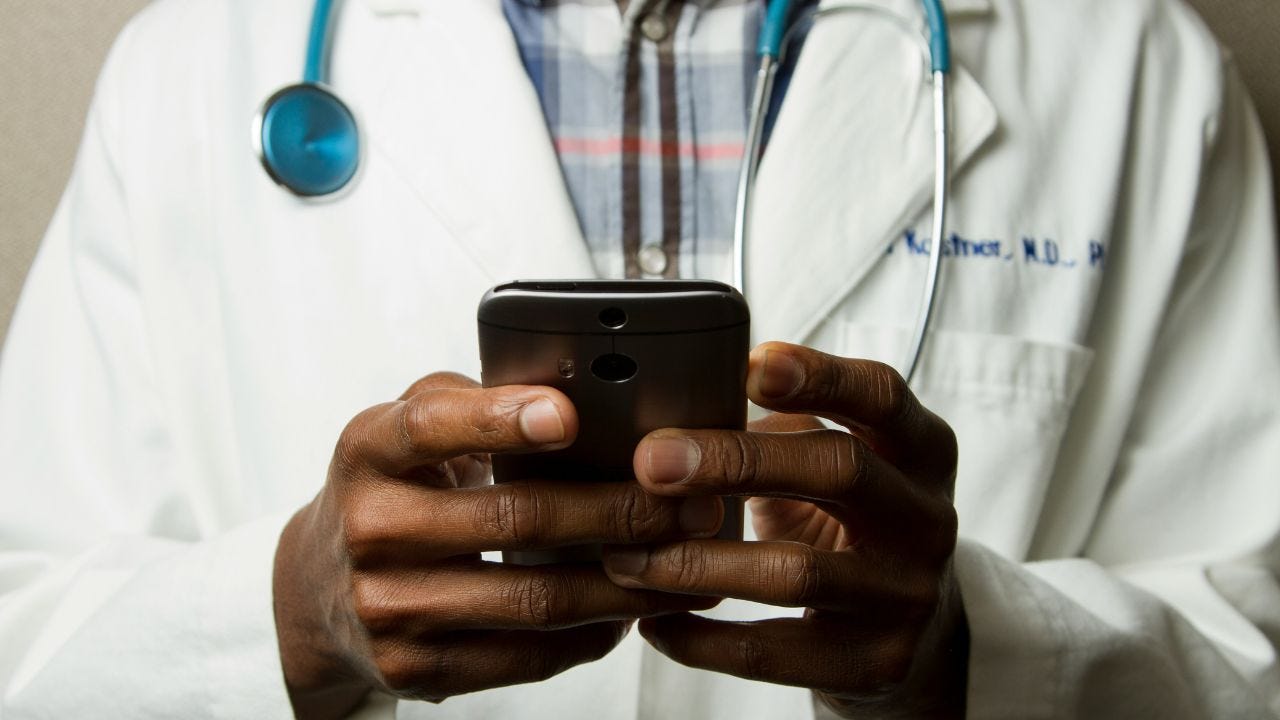Why Backlash Against DEI Threatens Healthcare Equity
Plus, How NOT to Be a Bystander and Take Action Against Anti-DEI Rhetoric.
In April 2024, Drs Oni J. Blackstock, Jessica E. Isom, and Rupinder K. Legha wrote the opinion piece, Health care is the new battlefront for anti-DEI attacks, and I can't agree more. As I read the article over my morning SipHerbals, it hit me hard because I was brought back to 2023 when the Supreme Court decision severely limited the use of race in college admissions. I remember posting a series of Instagram stories sharing how this decision would be farreaching beyond education, and healthcare would be the next industry under attack.
Well, a particular gentleman in my audience who was anything but gentle took offense to my stories, calling me a racist and a few other choice words. Since I’m not a racist or any of the other choice words he called me, I wasn’t offended. However, when he proclaimed there wasn’t ANY bias in healthcare, that’s the part that left me confused.
As Blackstock et al. (2024) highlight, studies have proven that there is a negative bias toward Black patients by their healthcare providers, which contributes to lower quality of care. When I say bias impacts healthcare equity, I’m not speaking theoretically. I’m stating facts that I thought were obvious, but my encounter last year with a former “follower” shows me that is sadly not the case.
What We Need to Understand About the Backlash
The recent surge in backlash against Diversity, Equity, and Inclusion (DEI) initiatives is not just a social and political issue; it's a direct threat to healthcare equity. For healthcare providers, this backlash can undermine efforts to create an inclusive environment where every patient receives the care they need. As healthcare providers, your role is pivotal in combating these biases and ensuring equitable care. Lawsuits, like the one against the Medical Board of California to prevent the teaching of implicit bias for the continuing medical education of physicians, illustrate why DEI is vital in healthcare.
For One, Implicit Bias is Prevalent.
As I’ve discussed, implicit biases are unconscious attitudes that affect our understanding, actions, and decisions. Studies have shown that implicit bias in healthcare can lead to disparities in treatment recommendations, pain management, and overall quality of care for Black patients. Therefore, addressing these biases to move towards a more equitable healthcare system has become more pertinent.
Secondly, the Data Doesn't Lie.
Counter to what some would like you to believe; the research consistently shows that the care provided to Black patients is lower quality than that of white patients. This isn't a matter of opinion; it's a documented reality. For instance, the Centers for Disease Control and Prevention (CDC) have shared that compared to white women, Black women are three to four times more likely to die from pregnancy-related causes. The even scarier part about that statistic is that it’s been increasing, not decreasing, highlighting the urgent need for DEI initiatives to address and mitigate implicit biases in healthcare.
Thirdly, We Need to Create Inclusive Environments.
It’s unpleasant, but DEI initiatives must foster inclusive environments where patients feel seen, heard, and valued. When healthcare providers embrace DEI, they contribute to a culture prioritizing patient-centered care, essential for improving health outcomes for marginalized groups.
Now, It’s Time to Discuss the Elephant in the Room
There is a real, not imagined, threat of anti-DEI movements undermining the progress we have made in creating equitable healthcare environments. These movements often stem from a misunderstanding or denial of the realities of racial disparities in healthcare. By pushing back against DEI, these groups hinder efforts to address systemic issues contributing to inequitable care.
What breaks my heart even more is how this will impact patient trust. When DEI initiatives are attacked, it can erode the trust that patients, particularly those from marginalized communities, have in the healthcare system. As we all well know, trust is a cornerstone of effective healthcare delivery. Because of this, patients must believe their providers understand and respect their unique experiences and challenges.
However, I don’t want to sugarcoat this. If we don’t take the anti-DEI movements seriously, there’s a good chance they will compromise care quality. By this, I mean healthcare providers not trained to recognize and address their biases may inadvertently deliver substandard care to patients from diverse backgrounds. Subsequently, patient outcomes will be affected, further contributing to the perpetuation of healthcare disparities.
Don’t Be a Bystander, Here’s How to Take Action
1. Educate Yourself and Your Team
One of the most practical tools against implicit bias in education is continuous learning about the impact of implicit bias and the importance of DEI in healthcare. Encourage your team to participate in training sessions and workshops focusing on these topics.
2. Advocate for DEI Initiatives
While I’m all for people who look like me advocating for DEI initiatives, I also know the power of those who don’t look like me. When historically marginalized and non-marginalized people use their voices and influence to advocate for DEI initiatives, they can cultivate power change within their organizations. You can achieve this by highlighting the importance of these initiatives in improving patient care and health outcomes. By being proactive in supporting policies and practices, you can be an essential voice in promoting equity and inclusion.
3. Create a Supportive Environment
As healthcare providers, we must foster a culture of openness and inclusivity. This means engaging your staff in training so that we can comfortably encourage open dialogues about bias and discrimination with our patients. While I’m not advocating for you to make swift changes overnight, creating accountable spaces where staff and patients can share their experiences and concerns is essential.
So, What’s Next?
The backlash against DEI initiatives poses a significant threat to healthcare equity, but as healthcare providers, you can counteract this threat. By educating yourself and your team, advocating for DEI, and creating supportive environments, you can create the pathway for a more equitable healthcare system.
Remember, addressing implicit bias and promoting equity is not just a moral imperative; it's essential for delivering high-quality care.
If you found this newsletter informative and transformative, please subscribe for more insights on healthcare equity. Together, we can make a difference in creating an equitable healthcare system for all.
Reference
Blackstock OJ, Isom JE, Legha RK (2024) Health care is the new battlefront for anti-DEI attacks. PLOS Glob Public Health 4(4): e0003131. https://doi.org/10.1371/journal.pgph.0003131
Featured Product
SipHerbals Coffee Substitute
Did you make it to the end?! Go, you! My little obsession, SipHerbals, gets me through writing (and reading) newsletters, so I might as well share this favorite with you. Plus you can use coupon code (tomeshacampbell) here to give it a try!
(Note: While I earn a commission if you purchase using my link, I only recommend products that I use, love, and trust are a good option for you.)
Cheers,
Tomesha Campbell
Founder, EBWH








💯 agree. I’ll say it louder for the folks in the back. Health care is biased, especially in Diabetes Care. https://open.substack.com/pub/inclusivediabetescare/p/the-problem-with-predisposed?r=1pf4xh&utm_medium=ios